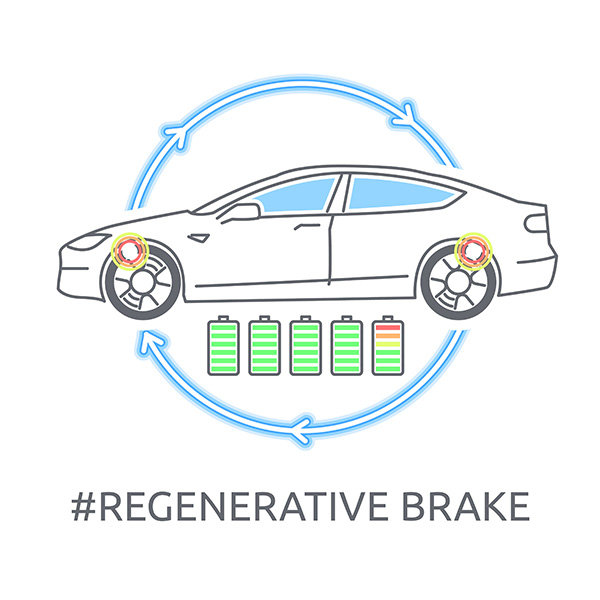Posted on 5/29/2024

In today's world of automotive innovation, hybrid cars are gaining popularity for their fuel efficiency and eco-friendliness. One of the key features that sets hybrid vehicles apart is regenerative braking. But what exactly is regenerative braking, and how does it work? If you've ever been curious about this technology and its benefits, you're in the right place. We'll explain regenerative braking, exploring its mechanics, advantages, and impact on the driving experience. An Overview of Regenerative Braking Regenerative braking is a technology used in hybrid and electric vehicles to capture and store kinetic energy generated during braking. Unlike traditional braking systems, which convert kinetic energy into heat and dissipate it as wasted energy, regenerative braking harnesses it and stores it for later use. This innovative approach impro ... read more
Posted on 12/30/2023
.jpeg)
Often confused and misunderstood, the alternator and battery play distinct yet interconnected roles in keeping your engine running smoothly. Join us if you want to demystify the differences between a car battery and an alternator. We will also shed light on their unique contributions to your car. The Battery The car battery is like a reservoir for energy, waiting to unleash its power when you turn the key in the ignition. Its primary function is to store electrical energy and deliver it to the starter motor, initiating the combustion process that brings your engine to life. Once the engine runs, the battery takes a step back, allowing other components to power the vehicle. The Alternator While the battery provides the initial jolt to start the engine, the alternator takes the stage as ... read more
Posted on 11/30/2023

What advantages are there to keeping your older vehicle operational rather than trading it in for the latest model? When we conduct a digital inspection on your car, we provide you with a comprehensive overview of its condition. While it cannot foresee every issue, it does give you a good understanding of the current and long-term maintenance needs to keep your vehicle running. Considering the average cost of a new vehicle is now well over $48,000 with a monthly payment of $700 or more, the expenses for maintaining or repairing your current car may be more manageable within your budget. Maintaining an older car instead of purchasing a new one can present numerous benefits. Primarily, it is often more economical to maintain an older vehicle, as new cars typically experience higher depreciation in the initial years. Additionally, older cars often feature simpler mechanical systems that are easier and less costly to repair, leading to reduced maintenance expenses. Moreover, older ... read more
Posted on 11/21/2023

To get the best fuel mileage in the winter, consider the following tips: 1. Properly maintain your vehicle: Ensure that your vehicle is in good condition by keeping up with regular maintenance such as oil changes, air filter replacement, and tire rotation. A well-maintained vehicle operates more efficiently and consumes less fuel. 2. Check tire pressure: Cold temperatures can cause tire pressure to drop, leading to increased rolling resistance and decreased fuel efficiency. Regularly check your tire pressure and ensure it matches the manufacturer's recommended levels. 3. Use winter tires wisely: If you live in an area with significant snowfall and icy conditions, consider using winter tires. Winter tires provide better traction and control, which can help prevent wheel spin and excessive fuel consumption. However, remember to switch back to all-season or summer tires once the winter season is over, as winter tires can increase rolling resistance on dry roads. 4. Warm up your ve ... read more
Posted on 11/3/2023

Warming up your vehicle before driving is a common practice in colder climates, but it has both pros and cons. Here are some of the advantages and disadvantages: Pros of Warming Up Your Vehicle: 1. Engine Lubrication: Warming up your vehicle allows the engine oil to reach its optimal operating temperature and flow smoothly, providing better lubrication. This helps reduce wear and tear on engine components, especially during cold starts. 2. Interior Comfort: Preheating your vehicle's interior can make it more comfortable for occupants, particularly during freezing temperatures. 3. Defrosting: Warming up the vehicle helps defrost the windows, improving visibility and ensuring safer driving conditions. 4. Battery Performance: In extremely cold weather, warming up the engine can help the vehicle's battery perform better by reducing its load. This might be especially beneficial for older or weaker batteries. Cons of Warming Up Your Vehicle: 1. Fuel Consumption: Idling the engine t ... read more